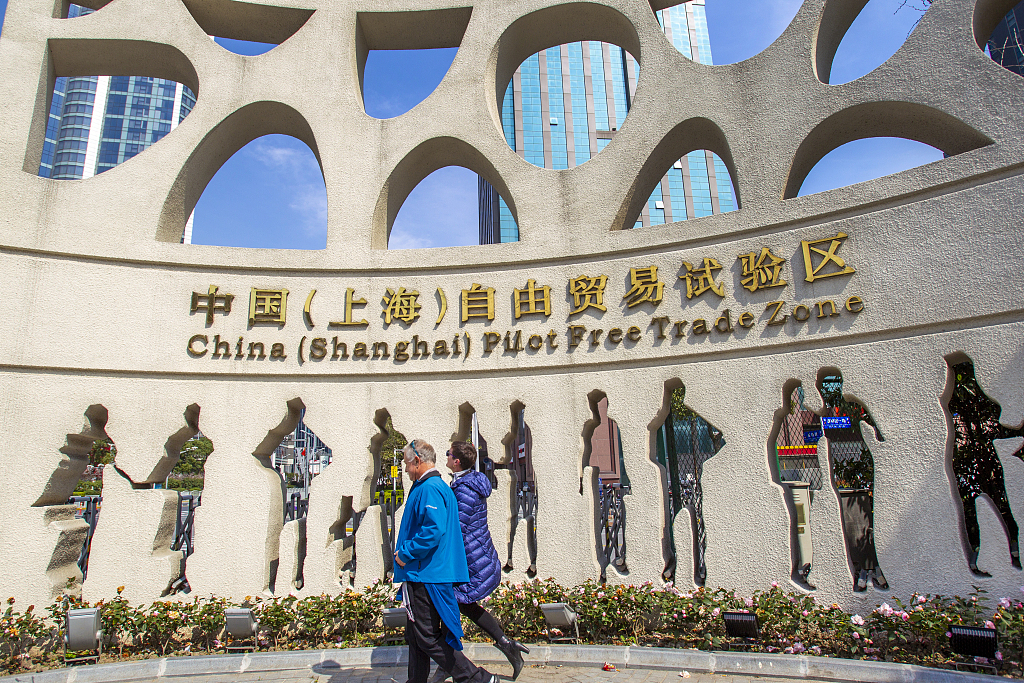
A woman picks up imported goods in a supermarket in Fuzhou, China, September 17, 2019. /VCG Photo
A woman picks up imported goods in a supermarket in Fuzhou, China, September 17, 2019. /VCG Photo
Editor's note: The article was first published by China Plus on October 24, 2019. The article does not necessarily reflect the views of CGTN.
China has jumped to 31st place from 46th in the World Bank's annual doing business rankings. It's also, for the second year in a row, among the global top 10 best performers in terms of overall improvement in the ease of doing business. These results are a vote of confidence for China's ongoing efforts to streamline its business environment.
The rule of law helps to guarantee that a country can foster a good business environment. China's new Foreign Investment Law, which was passed in March, stipulates the intellectual property rights and technical protections available for foreign-funded enterprises. It also secures in law their right to be treated equally with domestic enterprises and for the industry sectors closed to foreign investment to be clearly defined. Taken together, these measures provide institutional guarantees for the business environment. And the Regulation on Optimizing the Business Environment that was recently issued by the State Council sets binding regulations that are based on China's policy experience in promoting fair competition and enhancing market vitality.
The government has also accelerated the pace with which it is aligning domestic rules with internationally accepted practices. The resulting improvements in policy transparency and law enforcement have gained recognition from the World Bank. Since the beginning of this year, officials at the national level and in the cities of Beijing and Shanghai have implemented more than 130 reform measures in line with international standards. This has helped to further strengthen the international competitiveness of China's business environment.

China (Shanghai) Pilot Free Trade Zone. /VCG Photo
China (Shanghai) Pilot Free Trade Zone. /VCG Photo
The World Bank report notes that China has made noteworthy improvements when it comes to the process of issuing construction permits – it has moved 88 spots up the global rankings, the biggest jump recorded on a single measure. And building on reforms that began last year, China has streamlined the process for obtaining an electricity connection; businesses in China need to complete two steps and wait 32 days to get connected, half the regional averages of 4.2 procedures and 63 days in East Asia.
These measures have helped to encourage foreign firms to continue to invest in China. Despite the decline in global foreign direct investment, China saw nearly 31,000 foreign-invested enterprises established in the first nine months of this year, and the actual use of foreign capital stood at around 680 billion yuan (some 96 billion U.S. dollars), up 6.5 percent over the same period last year. And China remains a major destination for global venture capital.
President Xi Jinping has stressed his commitment to making China a world-class business destination. This commitment can be seen in the national government's decision to make streamlining the business environment one of its top 10 tasks for the year. As the World Bank's Country Director for China, Martin Raiser, has pointed out, the government's political commitment to reform is the most important reason why China has continued to rise up the organization's global rankings.
Substantial progress has been made, but more can be done to further strengthen the business environment in areas such as tax payments and improving the ability of private firms to access credit. As long as the government continues to carry out reforms in those areas, there will be better and better opportunities on offer for global investors.
(If you want to contribute and have specific expertise, please contact us at opinions@cgtn.com.)